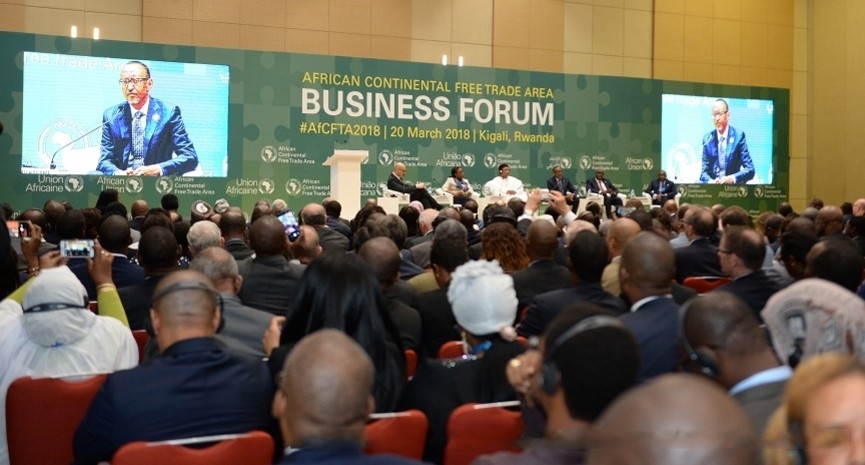44 African countries agree to create Continental Free Trade Area
The leaders of 44 African countries have signed a historic deal to create one of the world

March 22, 2018: The leaders of 44 African countries have signed a historic deal to create one of the world's largest free trade blocs. The African Continental Free Trade Area (AfCFTA) was signed at the Extraordinary Summit held in Kigali, the Rwandan capital. It is expected that the deal, the biggest free trade agreement since the establishment of the World Trade Organisation (WTO), will come into force within six months, and increase prosperity for 1.2 billion Africans. AfCFTA will remove barriers to trade, like tariffs and import quotas, allowing the free flow of goods and services between its members.
While addressing the leaders at the closing ceremony of the summit on Wednesday (March 21) Paul Kagame, President of Rwanda and Chairperson of the African Union said: "This has been a memorable day for the people of Africa. Allow me once again to commend everyone involved in bringing us to this stage."
"Today’s milestone is an indication of how much is possible when we work together. Let’s use the momentum we have gained to push forward with the other Agenda 2063 flagship projects that we have committed ourselves to in the first Ten-Year Implementation Plan," Kagame said. Kagame underscored the necessity of "ensuring women and young people have their full and rightful place" to fully realise the benefits of this continental free trade.
"The task now is to ratify the African Continental Free Trade Area and the Protocol on the Free Movement of Persons, so that they may come into force as soon as possible. It is well understood that some member states require additional time for internal procedures and consultations," African Union Chairperson reiterated.
Ten countries, including Nigeria, have refused to sign the deal, and it will need to be ratified by all the signatories' national parliaments before the bloc becomes a reality. Nigerian President Muhammadu Buhari pulled out of the summit, after "certain key stakeholders" - thought to mean trade unions and businesses - complained they had not been consulted. However the African Union said it hoped those countries with reservations would be persuaded to sign at a later date.
Moussa Faki Mahamat, head of the African Union commission, called the deal a "glorious challenge... which calls for the courage to believe, the courage to dare... the courage to achieve". He then recognised that to succeed the countries will "need to summon the required political will".
A research paper by United Nations Conference on Trade and Development (UNCTAD) acknowledges that elimination of all tariffs between African countries would lead to long-term welfare gains of approximately $16.1 billion, after a calculated $4.1 billion in tariff revenue losses. The UN Economic Commission for Africa (UNECA) has estimated the agreement's implementation could increase intra-African trade by 52 percent by 2022, compared with trade levels in 2010.


